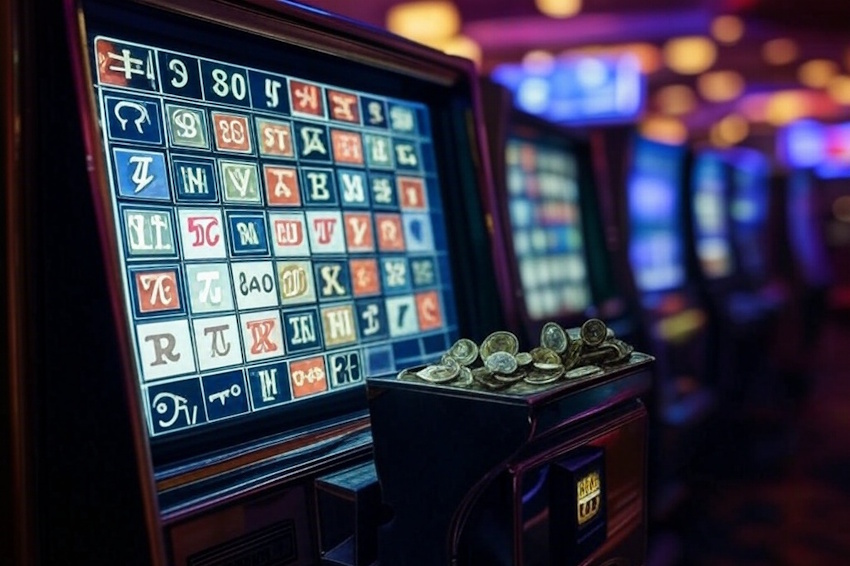

Are Slots Completely Random?
Are slots and randomness one and the same?
Do Lucky Pants work and which colour is the best?
Picture this: you’re strolling down the Las Vegas Strip, the neon lights buzzing, or maybe you’re tucked up at at home in your PJs, clicking away at an online casino.
You pull the lever—real or virtual—and the reels spin. Cherries, bells, and sevens whirl by, and you’re left wondering: Is this all just luck?

Are slots completely random, or is there something more at play? Let’s dive into the world of casino slots, from their mechanical roots to the multimillion-dollar jackpots of today, and figure out what’s really going on behind those flashing lights.
How Slots Work: The Magic of RNGs
Modern slot machines, whether a video slot in the Bellagio or on your phone, rely on something called a Random Number Generator (RNG). This little piece of tech is the beating heart of every spin. An RNG churns out thousands of numbers per second, each tied to a specific outcome on the reels. The moment you hit “spin,” it locks in a number, and voilà—your fate is sealed.
No hidden levers, no sneaky casino employee pulling strings. It’s cold, hard mathematics, designed to keep things fair and unpredictable. Let’s call it the slots Algorithm. You push a button and it spits out a random combination of symbols
But it wasn’t always this way. Let’s rewind.
The One-Armed Bandit Days
Slots started life as clunky mechanical beasts in the late 19th century. The first, created by Charles Fey in 1895, was the Liberty Bell—a simple machine with three reels and a handful of symbols. Back then, randomness came from gears and springs, not code.
You’d yank the lever (hence “one-armed bandit”), and the reels would clatter to a stop. Clever players figured out you could sometimes nudge the odds with a well-timed pull or even a bit of mechanical tampering. Casinos weren’t thrilled. It was the dealer Signature of the slots world.
Fast-forward to the 1960s, and electricity entered the game. Reels got fancier, payouts grew, but the real revolution came in the 1980s with video slots and, eventually, RNGs.
Today’s machines are sleek, digital marvels, often networked across cities or even countries for jaw-dropping progressive jackpots—think of Mega Moolah or Megabucks, where a single spin can net you millions.
Hot and Cold Streaks: Myth or Reality?
Every player has felt it: the machine’s “hot,” spitting out wins, or “cold,” swallowing coins like a greedy labrador. But here’s the kicker—RNGs don’t care about streaks. Each spin is independent, with no memory of what came before.
That 100 you just lost? Well, it doesn’t make the next spin “due” for a win. Studies, like those from the University of Nevada’s gaming research, back this up: slots are random, period.
So, what about following someone who’s pumped cash into a machine? Sorry, no cigar. The RNG doesn’t track how much money’s been fed in. You’re as likely to hit the jackpot after a big spender as you are on a fresh machine. It’s brutal but fair.
The Big Players in the Game
So who’s behind these money-munching marvels? The slot world’s dominated by a few heavyweights. IGT (International Game Technology) is a titan, with hits like Wheel of Fortune. Aristocrat, hailing from Australia, brings us fan-favorites like Buffalo.
Then there’s Bally, a Vegas staple, and newer players like NetEnt, pragmatic Play, Play ‘n GO and Microgaming, who rule the online realm with slick graphics and massive networked prizes. These companies pour millions into design, balancing eye-catching themes with that all-important RNG fairness.
Lucky Pants – Which Colour’s Best?
So, are slots completely random? Yes—RNGs ensure it. There are no secret patterns, no hot streaks, just pure chance. But let’s be real: we all have days where we feel luckier, don’t we? You wake up, slip on your lucky pants (that’s underpants for us Brits), and strut to the casino—or your laptop—convinced today’s the day. Science says it’s nonsense, but who doesn’t love a good superstition?

As for the best colour for lucky slots pants? Red’s a classic—bold, fiery, like the Vegas Strip itself. Green might nod to money, but it’s a bit cliché.
But I say go for purple—regal, unexpected, and just quirky enough to make you smile when the reels don’t.
Because at the end of the day, slots are about entertainment. Random or not, they can be a wild ride—so you need to be dressed for the part.
Questions
FAQs
-
How do Random Number Generators ensure slot games are fair?
Random Number Generators (RNGs) play a key part in ensuring fairness in slot games by providing mathematical proven random and unpredictable outcomes for each spin. Here’s how:
– Independent Randomness
RNGs generate random numbers all the time, often thousands of times per second, even when you are not spinning the reels. Each spin’s result is set by the most recent number generated when you hit “Spin”, so that each spin is independent and unaffected by historical results. This avoids any patterns or predictable outcomes, making it impossible for players or casinos to manipulate the results.
-Fairness and Transparency
Many casinos and game designer provide detailed information about how their RNGs work, fostering trust.
– Third Party Testing and Certification
To guarantee a fair game, RNGs undergo testing and certification processes:
– Independent audits: Third-party agencies test and audit RNGs to verify they do what they say they do.
– Regulation: Gaming commissions and authorities police the use of RNGs to make sure they adhere to strict standards. That is why it important to play at a casino that is licensed in a reputable jurisdiction such as the UK or Gibraltar. Malta also has a pretty good reputation. -
Can RNGs be influenced or tracked by players, and if so, how?
Random Number Generators (RNGs) used in casino slots are designed to be manipulation-proof by players. Players have tried to break RNGs in the past of course! Here are some strategies thta people have used. This generally amounts to fraud if you are caught.
– Predicting the Seed Prediction: If you can predict or influence the seed used by the RNG, you could theoretically forecast results. Modern RNGs use complex seeding methods to safeguard against this.
– Timing: In some older systems, players try to time their actions to match up with favourable RNG states. This is not possible with sophisticated modern RNGs.
– Physical Tampering: In land-based casinos, players have tried to manipulate slot machines physically, such as using tools to mess with the slot’s sensors. Modern game machines can detect and prevent this kind of activity.
– Software Loopholes: In online gaming, hackers have found doorways into the game code that helped them to predict or influence RNG results. All gaming companies these days regularly audit and update their software to minimise the risk from such attacks to pretty much zero. It is a “cat and mouse game” though.
– Continuous Number Generation: Most RNGs in slots run all the time, even when they not being played, making it very difficult for anyone to predict or influence outcomes.
– Cryptographic Security: Modern RNGs often use cryptographic algos that are mathematically proven to be secure against prediction or manipulation.
– Regular Auditing: regulators insist on regular testing and certification of RNGs to ensure their fair play randomness.
Successful manipulation of a modern RNG slot in a regulated gaming environment is very rare. That is not to say that it doesn’t go on. It’s the kind of information that a casino keeps very secret if it does happen as it can have an adverse effect on the confidence of the casino and even the share price of the company if it is a publicly listed company.
